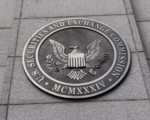In January, just before Republicans took control of the U.S. Securities and Exchange Commission (SEC), the agency held a closed-door vote on whether to sue Elon Musk for securities law violations related to his late disclosure of purchasing shares in Twitter (now X). According to sources familiar with the vote, four of the five commissioners, including Republican Hester Peirce, voted in favor of suing Musk, while the acting SEC chief, Republican Mark Uyeda, cast the lone dissenting vote.
This vote occurred just days before the SEC filed a lawsuit against Musk on January 14, alleging that he had violated disclosure rules by failing to report his purchase of more than 5% of Twitter’s shares within the required 10-day window. Musk’s late disclosure, which came 21 days after the purchase, allegedly allowed him to acquire more shares at a lower price, saving $150 million on his eventual acquisition of the company.
Uyeda reportedly expressed concerns over the penalty Musk faced and pressed SEC enforcement staff to confirm that politics were not influencing the case, asking them to sign pledges to that effect, which the staff refused. Despite Uyeda’s concerns, Peirce joined the three Democratic commissioners in voting to proceed with the lawsuit.
The SEC’s investigation into Musk, which began in 2022, focused not only on the timing of his disclosure but also whether he had acted with any intent to manipulate the stock price. Musk has maintained that the delay was due to a misunderstanding of the SEC’s rules. The SEC ultimately did not pursue charges alleging intent.
The delay in bringing the case has raised questions among legal experts, who have questioned why the SEC waited so long to act, particularly given the politically charged nature of the case. Musk has had a longstanding feud with the SEC, dating back to 2018 when the agency sued him for misleading investors in a tweet about taking Tesla private.
Musk has until April 4 to respond to the SEC’s summons in this case.


















